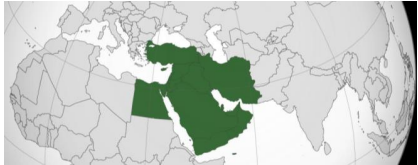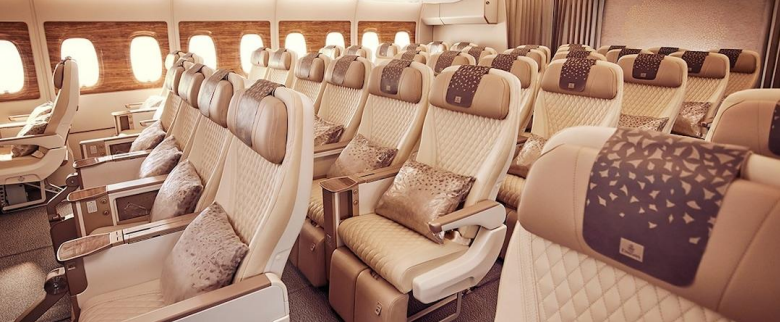Premium air travel is experiencing a strong rebound across global markets, with the Middle East leading the way in terms of market share. While Asia Pacific dominates overall growth volumes, it is the Middle East that stands out for its higher concentration of travelers opting for first and business class cabins. This trend reflects the region’s strong economic base, evolving lifestyle preferences, and strategic position as an international aviation hub.
Rising Popularity of Premium Travel Globally
Premium air travel, which includes first and business class cabins, is seeing steady growth after the challenges brought by the pandemic. Airlines worldwide are reporting increasing demand from business travelers, high-net-worth individuals, and leisure passengers seeking comfort and exclusivity. Recent data highlights that globally, premium cabin bookings have outpaced economy bookings in terms of revenue growth.
This trend is not limited to one region; however, the Middle East has gained attention due to its disproportionately high share of passengers flying in premium classes compared to the global average.
Middle East Takes the Lead in Premium Market Share

Airlines such as Emirates, Qatar Airways, Etihad, and Saudi carriers have been at the forefront of redefining luxury air travel. According to industry sources, travelers from cities like Dubai, Riyadh, and Kuwait are among the strongest contributors to premium cabin demand.
The Middle East’s aviation sector benefits from a unique combination of factors:
- Wealth concentration: The region hosts some of the world’s highest per-capita income levels.
- Transit hub advantage: Airports in Dubai, Doha, and Abu Dhabi serve as major international connecting points, attracting long-haul travelers willing to pay extra for comfort.
- Business travel growth: With rapid economic diversification and expanding corporate activity, executives across the Gulf region increasingly rely on business class travel for efficiency.
This has resulted in the Middle East capturing a higher proportion of premium bookings than markets in Europe or North America, where demand is more evenly distributed between classes.
Asia Pacific Drives Growth in Numbers
While the Middle East leads in premium travel share, Asia Pacific remains the fastest-growing region in absolute passenger numbers. Countries like China, India, Singapore, and Australia are witnessing a surge in both leisure and business travel. However, much of this growth is concentrated in economy and premium economy segments due to price sensitivity in emerging markets.
Still, rising disposable incomes and the increasing presence of multinational corporations are expected to gradually expand Asia’s premium travel segment in the coming years. Airlines such as Singapore Airlines, Cathay Pacific, and ANA have also invested heavily in upgrading their premium cabins to meet evolving demand.
Gulf Carriers Redefining Luxury in the Sky
One of the biggest reasons the Middle East leads in premium market share is the heavy investment Gulf carriers have made in offering world-class experiences. Emirates’ iconic first-class suites, Qatar Airways’ Qsuite business class, and Etihad’s The Residence have set global benchmarks for luxury air travel.
These innovations go beyond just spacious seating—they include private suites, gourmet dining, personalized services, and advanced entertainment systems. For long-haul travelers connecting through hubs in Dubai, Doha, or Abu Dhabi, these offerings make premium travel an attractive choice despite higher ticket prices.
Economic and Cultural Drivers of Premium Travel
The demand for premium air travel in the Middle East is not only about wealth—it also reflects cultural and lifestyle shifts. Luxury consumption is a key part of the Gulf region’s identity, and this extends to travel choices. Additionally, the expansion of global events, such as Expo 2020 in Dubai and the FIFA World Cup 2022 in Qatar, has further boosted demand for premium cabins by attracting high-spending visitors.
Corporate expansion and government-led initiatives to diversify economies away from oil are also fueling frequent international travel for business executives. This contributes significantly to the sustained growth of first and business class bookings.
Outlook for Global Premium Air Travel
Looking ahead, analysts expect the premium travel market to maintain its momentum. In the Middle East, continued investment in aviation infrastructure, combined with rising demand from both residents and international travelers, will ensure the region’s leadership in premium cabin share.
Globally, Asia Pacific’s rapid expansion and North America’s steady business travel recovery will complement this trend, creating a competitive but growing landscape for airlines. As more travelers prioritize comfort, exclusivity, and productivity during flights, premium travel is set to become an increasingly important revenue driver for carriers worldwide.









